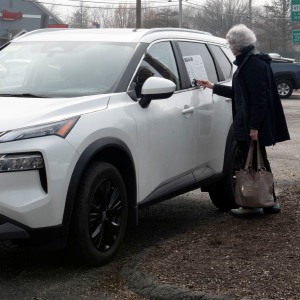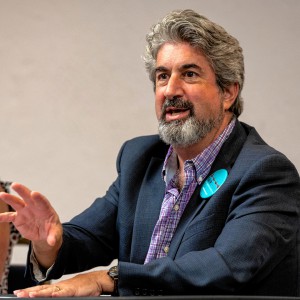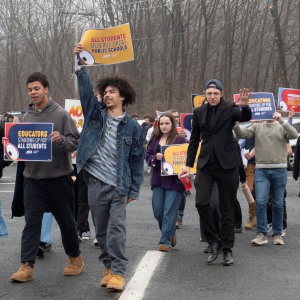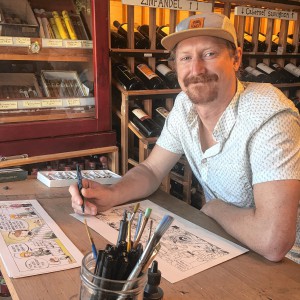Dearth of judges causing court bottleneck in Hampshire Superior Court, across state
| Published: 07-21-2024 2:01 PM |
NORTHAMPTON — Summertime is traditionally slow time in the courts, with vacations eating into the judicial system’s flow of business and occasionally leaving a court with no judge.
This summer, the seasonal slowdown is only compounding the fact that there aren’t enough judges, especially in Superior Court, which has 12 openings statewide, or one out of every seven seats.
There has been no full-time judge assigned to Hampshire Superior Court this month, nor is there one for September. Judge Bertha Josephson, who retired eight years ago, has agreed to return to the bench and has been filling in when she’s able, but she has also been assigned to Hampden Superior Court.
Vacancies keep mounting as judges reach the retirement age of 70. Judge John Agostini, who was due to retire last September, is expected to be in Hampshire Superior Court in August, but he’ll be needed in Franklin County, too, according to Clerk of Courts Harry Jekanowski.
“We’re all robbing Peter to pay Paul,” Jekanowski said. “It has an effect on the trial schedule.”
In some cases, a judge will conduct a hearing remotely.
“We’re ending up doing things on Zoom that should be in person,” Jekanowski said.
Northampton attorney John Drake, who practices mainly in district and probate courts, said he hasn’t seen a problem there.
Article continues after...
Yesterday's Most Read Articles
But he said the Franklin Superior Court in Greenfield has historically had no judge in the summer.
“That’s been going on for years,” he said.
Governor’s Council member Tara Jacobs of North Adams raised the issue at last week’s council meeting, which was chaired by Gov. Maura Healey. The council is responsible for confirming or rejecting the governor’s judicial nominations.
“Judicial vacancies are creating a critical bottleneck in our courts, one that is felt and seen,” Jacobs said, according to State House News Service. “And that is reaching a critical and urgent level that I hope will be addressed with a renewed vigor in nominations coming to council.”
Her words had the desired effect, with Healey late last week announcing five nominations to the Superior Court, including one from western Massachusetts.
Jacobs said she felt validated by the governor’s swift response.
“You hope that, having a voice at the table, you will have an impact,” she said Thursday. “It was one of those moments I debated whether to make a statement.”
She noted that she was highlighting a known issue, and she was glad that it resonated with the governor.
“She made a promise to address it,” she said. “She decided to start with Superior Court.”
After the nominations were made public, Jacobs said, the council immediately scheduled interviews over the next three weeks.
“It’s a good step forward as long as it continues,” she said. She’s hoping five more nominations will quickly follow.
While Jacobs said there are many more applications awaiting Healey’s stamp of approval, some see the shortage of judges stemming from a dearth of candidates.
James Winston, president of the Hampshire County Bar Association, said he sees fewer people willing to step up to the bench. It can often be a high-pressure job, making decisions that deeply affect people’s lives, and many feel they don’t need the stress.
He said he has talked to judges who say cases stay with them long after they’re formally concluded.
Earlier this year, he said, he organized a panel for prospective judges to learn more about being a judge.
“We had great speakers, but the turnout was disappointing,” Winston said.
While judges are important, Jekanowski noted that many cases are settled short of trial, so the wheels of justice can still keep moving.
“We’re keeping the train running, getting motions heard, trying to fit in pleas,” he said.
Superior Court handles major criminal cases and also civil cases, and the lack of coverage means civil sessions in many cases are not being held at all, Jacobs said.
“It’s significant impact on justice,” she said.
Judicial applications reach the governor’s desk only after the candidates have been through a rigorous vetting process.
All applicants are screened by staff of the Judicial Nominating Commission, then the commission votes to determine who will be invited for an interview. Those deemed qualified advance to the “due diligence” stage in which comments are sought from colleagues.
Candidates who pass this stage undergo review by legal counsel, including detailed background checks.
A slate of applicants is then reviewed by the Joint Bar Committee, which passes its recommendations on to the executive office.
The final step is interviews with the governor and lieutenant governor. Under law, the governor has 18 months to consider the nominations, and may nominate candidates to any vacancy.
The nomination becomes public once the letter is delivered to Governor’s Council, which requires each nominee to complete a questionnaire, provide a witness list and to appear before the council.
Jacobs announced Friday she has scheduled a local public confirmation hearing July 29 for judicial nominee Deepika Shukla of Northampton.
The hearing will be held in the Moot Court Room at Western New England University, 1215 Wilbraham Road, Springfield. Doors open at 5:30 p.m., and testimony will be from 6 to 7:30.
The formal Governor’s Council hearing for Shukla is scheduled for July 31 at the State House in Boston at 10 a.m.
James Pentland can be reached at jpentland@gazettenet.com.









 Dash to the dealership?: Local consumers, car sellers brace for auto tariffs to kick in Wednesday
Dash to the dealership?: Local consumers, car sellers brace for auto tariffs to kick in Wednesday MTA president offers ways for legislators to address ‘unprecedented dangers’ to K-12 education in state
MTA president offers ways for legislators to address ‘unprecedented dangers’ to K-12 education in state Nearly all of South Hadley High’s student body holds ‘walkout to walk-in’ rally to oppose cuts, call for funding reform
Nearly all of South Hadley High’s student body holds ‘walkout to walk-in’ rally to oppose cuts, call for funding reform ‘Wallace the Brave’ tumbles onto Gazette comics page
‘Wallace the Brave’ tumbles onto Gazette comics page
